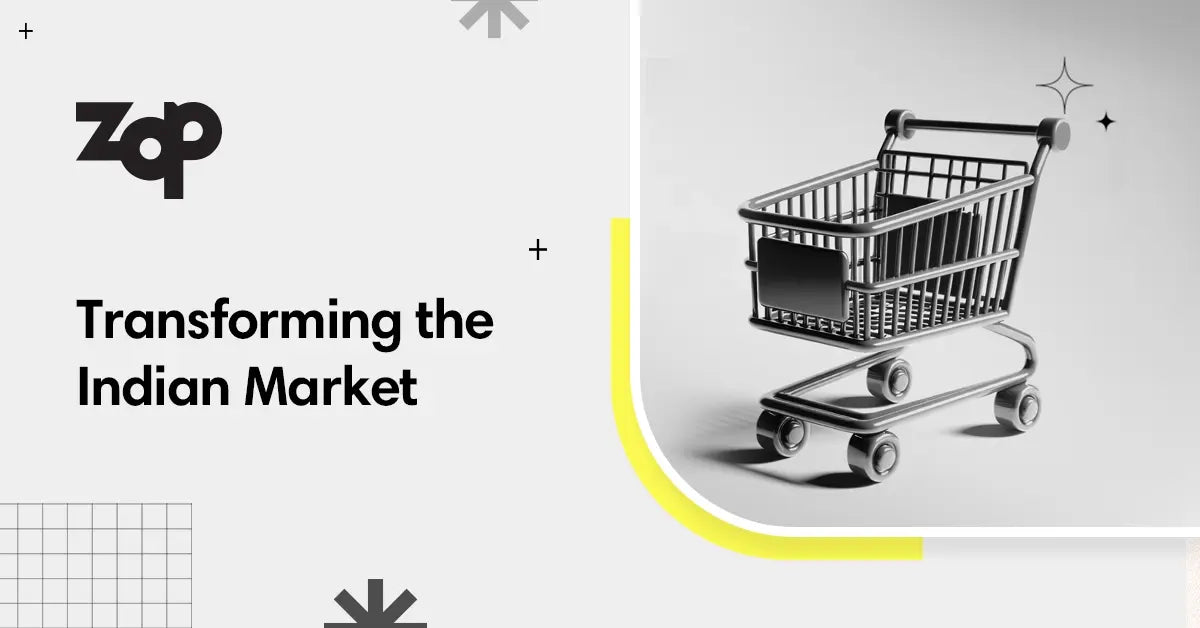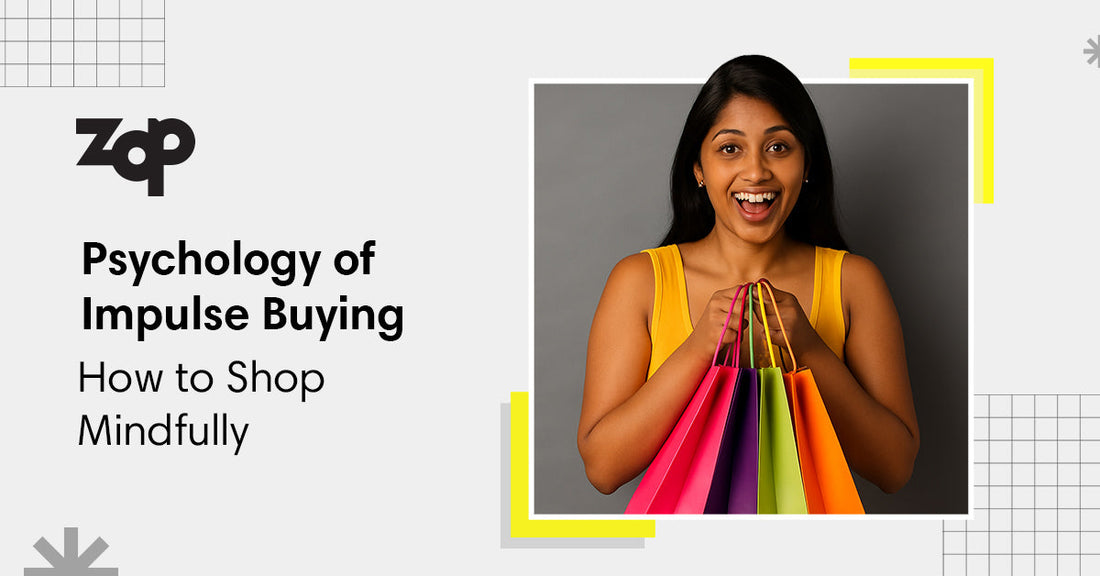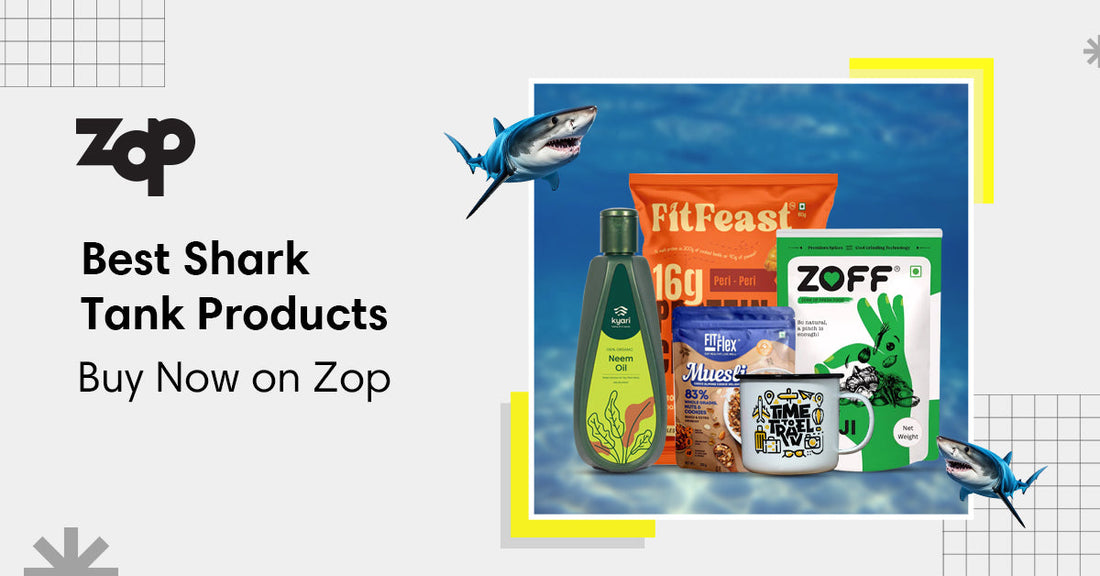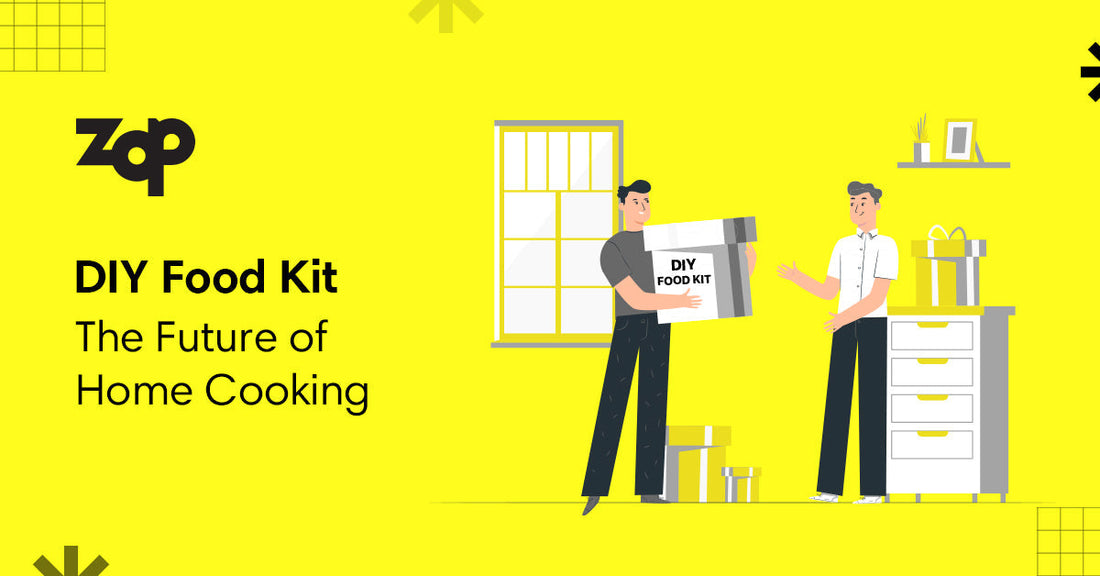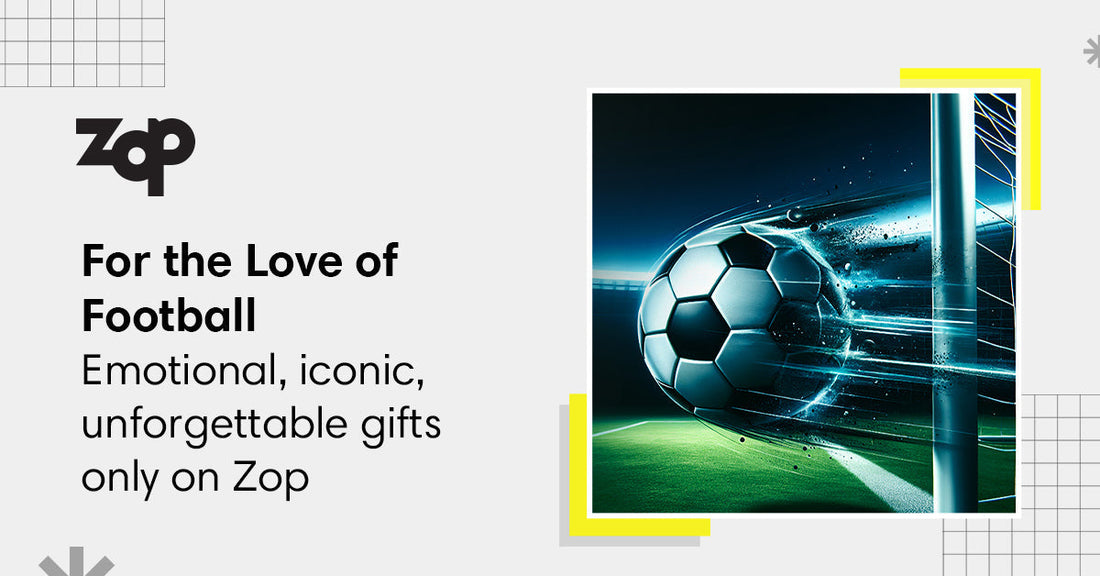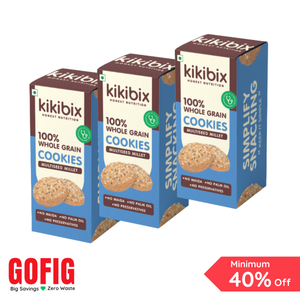The Indian direct-to-consumer (D2C) market is on the cusp of remarkable transformation, projected to reach a staggering $61.3 billion by FY27. You can attribute this spike to an increased focus on targeted marketing, hyper-personalisation, cut-throat competition, and rising per capita income.
Moreover, a report by Inc42 states India already boasts 800+ D2C startups and a burgeoning online shopper base over 100 million. Since 2014, the D2C segment has attracted nearly US $2.04 billion in funding, with the market pacing towards a whopping US $100 billion by 2025. Some of the best D2C brands have garnered the highest funding, like Lenskart ($774 Mn), Boat ($116.3 Mn), and more.
Nonetheless, in the vast pool of emerging and existing D2C businesses, certain brands are redefining what success looks like. Here’s a look at the 20 best D2C brands making a significant impact in the Indian market.
Top 20 Rising D2C Brands in India 2024
Let's take a look at 20 of the top rising D2C brands in India that have captured the attention of both consumers and investors:
BoAt Lifestyle
BoAt Lifestyle, founded in 2014 by Aman Gupta (also an investor at the Shark Tank India reality show) and Sameer Mehta, is a fashionable, wearable brand. It primarily sells audio-related and other electronic items. Its categories include headphones, speakers, earphones, power banks, car accessories, smartwatches, and more.
From being a bootstrapped firm to becoming a US $500 million brand, boAt's journey has been enterprising. In FY 2023, the company had 15 million of its products assembled in India, and it hit $500 million in revenue in the same year. It was the first time they’ve reached this figure since its inception. BoAt almost ruled the audio wearable segment in 2023, with nearly 30.6% of the market share.
BoAt played smart by restricting its sales to a single medium but stayed active on online and offline channels simultaneously. You can find the brand on eCommerce websites like Amazon, Flipkart, and Myntra, and in offline stores like Reliance Digital, catering to the varied shopping preferences of buyers.
Bombay Shirt Company
Launched in 2012, Bombay Shirt Company is India's first online custom shirt brand. Since then, they've opened over 20 brick-and-mortar stores nationwide and expanded their product offerings into many new categories.
This homegrown D2C clothing brand has raised Rs 54 Crore in a Series B funding round led by Singularity, involving contributions from Singularity general partner and the Caratlane founder, Mithun Sacheti.
Bewakoof.Com
Bewakoof, a lifestyle fashion venture established in 2012, makes creative, distinctive clothing for the trendy, contemporary Indian audience. The brand simply wanted to create a gruelling impact through innovation, integrity, and thoughtfulness.
They have a sizeable 400-member team today, with 2 million products flown off their shelves to date. Bewakoof’s product range always stays fresh and up-to-date, clocking sales of over 1 lakh products monthly. The brand has achieved these heights with smart moves such as vertically integrating, manufacturing their own products, and cutting out the middleman wherever possible. This D2C model allows them to curate high-quality fashion at pocket-friendly prices.
The brand is also thoughtful about its environmental impact and attempts to minimise its environmental footprint. They have impressive efforts, from rainwater harvesting to paper packaging, weaved into their day-to-day operations.
Pepperfry
In 2012, Ambareesh Murty and Ashish Shah aced omnichannel retail to launch Pepperfry, which is the country’s leading furniture and home goods eCommerce marketplace. In 2014, the company established its first brick-and-mortar store in Mumbai and expanded to over 70 stores spanning 28 Indian cities by 2019.
India’s furniture market was a hyperlocal show before Pepperfry disrupted the fabric of classical retail by merging an online virtual catalogue, creating the country’s most extensive big-box supply chain network and a huge omnichannel footprint with over 200 studios in about 100 Indian cities. The company has accumulated funding of over $200 million from many investors in the past decade.
The Souled Store
The Souled Store began when India's eCommerce story had only begun to make waves in 2013 and the UPI boom was still a thing of the future. The founders sensed a great opportunity and came together to share their passion with buyers who relish a touch of personality to everyday wear by fusing their favourite characters and mascots into the designs.
That’s how one of the best D2C brands came to life, offering quirky apparel featuring pop culture and comic references from DC and Marvel studios and famous sitcoms.
The Souled Store has successfully positioned itself as a booming omnichannel lifestyle brand, boasting 22 retail stores across the country. It Is available on online shopping websites like Myntra and Flipkart.
The brand ships nearly 2.5 Lakh online orders every month and has served over 70 lakh customers to date. It has expanded its team to 500+ members. Moreover, the brand clocked a Rs 253 Crores revenue in FY23.
Plus, with 3PL’s help, The Souled Store cut down its order processing time from 24 hours to 12 hours, giving their end customers a better experience.
Neemans
Taran Chhabra and Amar Preet came up with Neemans in 2018. The startup has created ripples in the US $11 billion Indian footwear market by introducing shoes crafted from merino wool in India. The unexplored yarn is a boon to the Indian feet because it has a unique temperature regulating property. The bonus? This material is sustainable and comfortable enough to wear all day.
Neeman's unique footwear impressed investors and the company raised Rs.20 Crores in the Sixth Sense Ventures Series A round. As the Indian footwear industry hadn’t seen much innovation, Neeman’s new-age products were like a breath of fresh air.
Their dual focus on customers and products yielded explosive growth in 2020 when most businesses hit rock bottom. They saw 600% growth despite the restrictions during the COVID-19 pandemic.
Five years and more than a million pairs sold, Neeman’s is now regarded as the best D2C brand that revolutionises footwear trends in India.
FableStreet
Fablestreet, an apparel brand launched in 2016, found that most Western fashion brands make garments according to the American/European body standards, which makes it difficult for Indian women to find a flattering and comfortable fit. Thus, the brand decided to focus on designing clothes specifically created keeping the Indian women’s body proportions in mind. They do not follow the standard US, UK, or EU size charts.
The brand collected over 1 lakh Indian women's body measurements to create India’s most appropriate FIT Algorithm. It gives a more accurate fit using only three measurements (chest, waist, and hip) acquired from customers during order placement. The 'FS Sizing Algorithm' takes only these three measurements and extrapolates the rest to 95% accuracy.
This approach paid off and won the hearts of customers and investors. FableStreet has raised approximately Rs 70 crore worth of funding to date.
Beco
With celebrities like Dia Mirza, Bhumi Pednekar, Ranbir Kapoor, Rohit Sharma, and Aamir Khan as investors, the Mumbai D2C startup ‘Beco’ is setting a new benchmark by replacing single-use plastic with its sustainable and eco-friendly products. The co-founder, Aditya Ruia, says Dia Mirza was surprisingly one of Beco's first customers. The startup was also among the vendors present at the actor’s famous sustainable wedding.
Beco, incepted in 2019, makes eco-friendly and cost-efficient products that are as flexible as single-use plastic items. They use recyclable cardboard packaging and their exclusive Cocozyme Technology that derives the natural power from coconuts and distills it into a soap form. In the past five years, Beco has saved more than 500 tonnes of plastic waste through its sustainable production and packaging model.
The company grabbed the attention of many investors and recently raised $3 million in a Series A round from Rukum Capital, Better Capital, Priyavrata Mafatlal, and others. It’s grown to become one of the best D2C brands in the sustainable segment.
CaratLane
CaratLane, shining bright since 2008, is one of the biggest Indian omnichannel jewellery retailers, with more than 140 physical stores in over 40 cities. It manufactures and sells jewellery in India and the United States.
In the last year, CaratLane achieved some incredible milestones:
Valuation: Rs. 17,000 crore (US $2 billion)
CaratLane is a favourite among many because of its high-quality jewellery at 30% lower prices than the usual market rates. They achieve this by eliminating inefficiencies and reducing costs, making their products much more affordable for customers.
Moreover, CaratLane's mobile app has become popular among the masses. Their app has advanced features like Virtual Try-on, which helps customers virtually try on thousands of earrings and see how they would look. With over 100,000 downloads, the CaratLane app has garnered significant traction in the market.
Just Herbs
A Mohali-based D2C venture by Arush Chopra, Dr Neena Chopra, and Megha Sabhlok started in 2014. Just Herbs came into action when Direct-to-Consumer (D2C) wasn’t the norm and eCommerce giants like Amazon and Flipkart ruled the online retail market.
From 2014 to 2016, the founders considered their website the primary sales channel since selling directly through the website meant quick payments. In 2017, they launched a Facebook community, JustHerbs Insiders, to get direct customer feedback, allowing about 3,000 to 4,000 women to talk about their experience with the band. That year, the company made over 30 lakh in sales through its website.
A merger with Marico in 2021 gave the Ayurvedic BPC brand wings, expanding to over 500 retail touchpoints across the country from just six. From generating Rs 17.5 crores in FY21, the co-founders claim to have surpassed the Rs 100 crore revenue run rate mark in FY24. The company now has a team size of over 300 members.
Chaayos
Chaayos, one of the best D2C brands in the food and beverages industry, has sold tea and food products since 2012. Apart from the 200 physical cafes it owns, the startup also takes advantage of the online marketplaces to reach more customers and sell products.
Over the years, the brand gained much popularity among generations, especially Gen-Z and Gen-Y. In FY23, Chaayos’ total revenue was Rs 253.4 crores, increasing by 81% from Rs 140.1 crores in FY22.
Chaayos' business model revolves around its unique product, 'Meri wali Chai,' a blend of quality, flavours, variety, and wholesomeness. The brand offers about 25 different types of tea and around 12,000 ways to customise these concoctions. Customers can also pick some add-on flavours and buy their bundled snacks and chai mixes.
Nuawoman
When Ravi Ramachandran launched Nua, a women's wellness D2C brand, in 2016, he noticed that there were numerous cosmetic and grooming brands in the market, but the women's wellness segment was left unaddressed.
Nua tapped into this sector by acknowledging women's health and hygiene. The brand sells sanitary pads, Cramp Comfort (India's first self-heating patch), 1mm Everyday Liners and Uplift (mensuration nutrition drink mix), foaming intimate wash, and more, targeting a community of 4 lakh+ women who want to start a new wellness journey.
The D2c brand raised US $7.1 million in pre-Series B funding led by Lightbox Ventures and others three years ago. Nua also added the famous actor ‘Deepika Padukone’ as their investor, who works closely with the brand to ideate and bring new wellness solutions.
Sugar Cosmetics
One of the best D2C brands in the cosmetic industry, Sugar Cosmetics, has seen a hard time in its teething days. It required capital, and Vineeta Singh and her co-founder, Kaushik Mukherjee, found it very difficult to raise funding.
In only four years after its inception in 2015, Sugar Cosmetics earned Rs 100 Crores in annual revenue as compared to legacy cosmetic brands like Revlon that took two decades to reach the same milestone in India. The founders credit most of the success to their offline bet, omnichannel approach, and app development.
The brand raised about US $50 million in April 2022, has expanded its offline presence and almost doubled its physical store count to 200 by June 2023. Sugar Cosmetics revenue jumped 89% to approximately Rs 420 crore in FY23.
Jimmy’s Cocktails
Jimmy's Cocktail started with only an initial investment of Rs 50 lakh in 2019 by Bhatia and others. Within a few months, they conducted a small seed round worth Rs 2 crores. Later, it raised Rs 9 crores in two rounds, and recently, the brand secured Rs 14 crores in funding in a bridge round led by Roots Ventures ahead of its Series A.
The company wanted to test its products in September 2019 to gauge the customers’ reactions and get some feedback before a full-scale launch. They pivoted to a D2C model during the first wave of COVID and launched their digital campaigns.
Within a short period, Jimmy’s Cocktails was selling from their website, capturing 400 locations in India, superseding their offline presence target. The startup’s incredible performance in a short span reflected in its growth: 0.1% of all the premium spirits people consumed at home back in 2021 were mixed with Jimmy’s concoctions. As a result, the brand saw nearly 180% revenue growth in that year.
Today, they have an omnichannel presence, available at all major eCommerce platforms and 5,000 retail outlets across 50 Indian cities.
Rage Coffee
Rage Coffee, started in 2018, this Virat Kohli-backed D2C startup in the FMCG industry is renowned as the world's first plant-based vitamins coffee venture. It raised nearly US $5 million in 2021 in a Series A funding round. The funding helped them expand their offline and online presence. As a result, you’ll find Rage Coffee in about 2,500 retail outlets across India.
In December 2023, the D2C brand achieved Rs 100 crores in its cumulative sales and has grown remarkably rapidly since its inception.
Mamaearth
Ghazal Alagh, the founder of Mamaearth, started this D2C brand in 2016 after realising the shortage of good baby care products available for her child. Mamaearth initially launched six baby products and, in just two years, penetrated other categories like skincare and haircare, which account for 80% of its website sales today (according to a Jefferies report)
Coolberg
Founded in 2016 by a husband-wife duo, Coolberg brings a variety of non-alcoholic beers to the Indian market. Coolberg is now one of the best D2C brands in India, producing non-alcoholic beers to introduce a new drink genre that the country has never witnessed before 2016. The brand raised US $3.5 million in Series A funding in 2019.
Their unique Malt Zero Alcohol Beer (having a beer-like flavour) and other malt-based drinks, like Cranberry, Strawberry, Ginger, Peach, and Mint took off. The company appealed to many customers, especially the teetotallers who need non-alcoholic drinks to enjoy with their friends and family at hangouts and clubs.
The millennial-oriented D2C brand also plays around with its packaging and has youthful and delightful designs to captivate its target audience. You can now find Coolberg's products in over 30 major cities. After four years of its launch, the brand got on the shelves of 25,000 stores within the country, making its way to supermarkets, cafes, grocery stores, restaurants, airports, colleges, and many online platforms.
Cultfit
When we talk about Cultfit, we’re looking at India’s first fitness unicorn, with an enormous sportswear collection for men and women, that touched Rs. 700 crores of revenue in FY23 (triple of what they made in FY22). Started in 2016, Cultfit has over 1 lakh consumers and a whopping 300% YOY sales growth over the last eight years.
Their secret sauce is acquisitions. The D2C brand acquired more than 20 startups in a span of eight years. The company also successfully raised Rs 84.5 crore (nearly US $10.2 million) in a funding round by their existing backer, Valecha Investments, contributing more than Rs 36 crores to the brand.
Urban Monkey
In five years, Yash Gangwal built a Rs 5 crore hip-hop products D2C brand suited for underground artists.
Young Indians, especially those born after 1980, really like hip-hop fashion. This style mostly focuses on hoodies, t-shirts, jackets, and sneakers with bright colours and loud designs.
Urban Monkey saw this trend and started making such clothes in 2014. The owner wanted to show off India's street culture. The company has even worked with famous Indian TV hosts and rappers, like Raftaar, Rannvijay Singh, Emiway Bantai, and many other celebrities to make their brand popular.
ZOP: Discover the Emerging D2C Brands in India
Zop is a unique online shopping platform connecting shoppers directly with D2C brands that make and sell their own products.
What does Zop offer?
For shoppers:
- They can find unique products from various D2C brands in India on one eCommerce platform.
- They get the best prices and personalised service.
For brands:
- New and growing D2C brands can tell their story and connect with customers.
- They don't have to go through big stores or marketplaces.
ZOP’s shopping experience for your end customers:
- Easy one-click checkout.
- Fast and reliable shipping.
- Good customer support post-purchase.
We want to change how people shop online by bringing shoppers and D2C brands closer. Sign up with us to leverage one of India’s best eCommerce platforms for D2C businesses.
Conclusion
The future looks bright for direct-to-consumer (D2C) brands in India. Investors have poured over $4 billion into these companies in recent years, showing strong faith in their potential.
As people earn more money and seek out unique, personalised products, D2C brands are well-positioned to grow. They can create unique items for specific customer groups, which encourages people to buy more often and spend more money.
With so many new and exciting D2C brands, platforms like ZOP by Shiprocket are becoming more important. They help shoppers discover these brands and allow the brands to tell their stories directly to customers. This connection between brands and buyers is shaping the future of online shopping in India.
